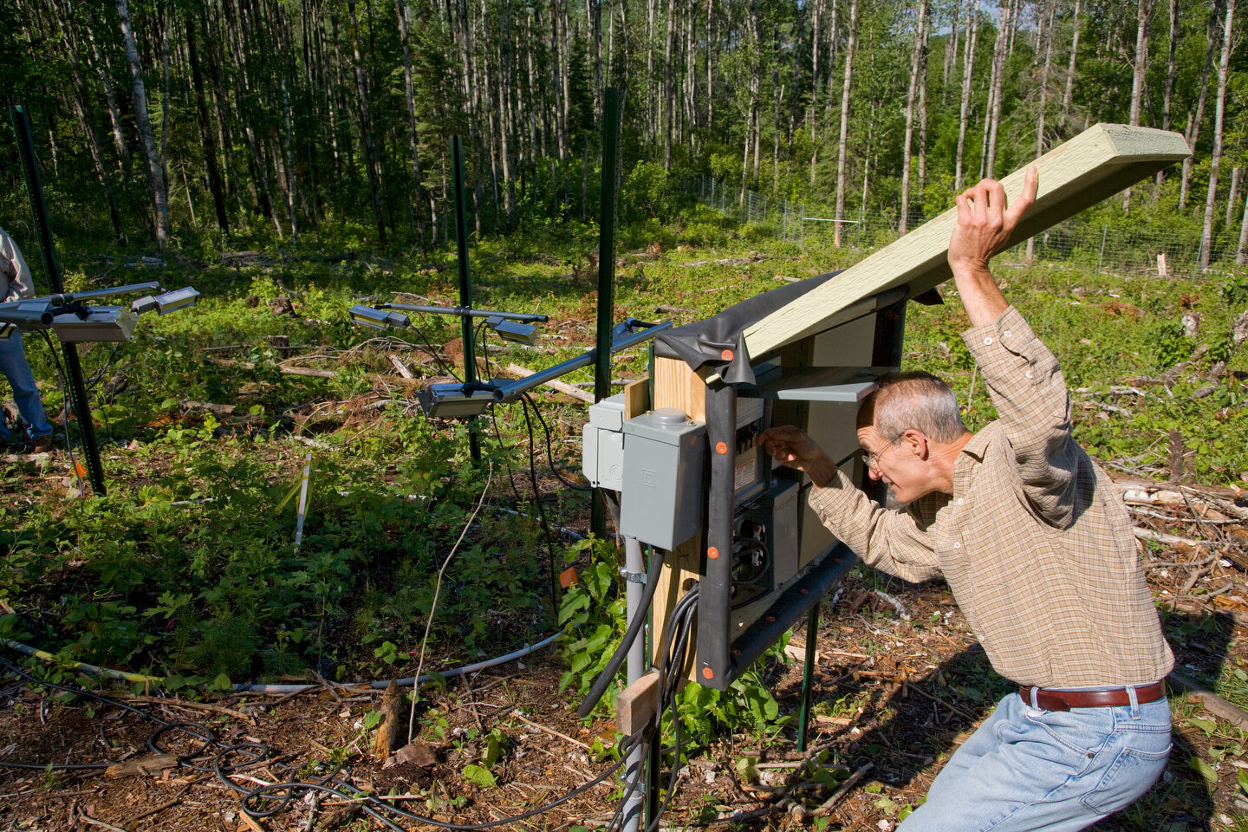
Understanding and projecting phenology during climate change with experimental and observational data
Changes in phenology are among the most sensitive biological responses to climate change. Changes in plant phenology have significant ecological consequences, such as in biodiversity and ecosystem services, as well as societal implications, such as public health and agriculture. While the large quantities of observational data contribute significantly to the accurate modeling of phenology in the past or near future, key data points from experiments under hypothetical climate change scenarios are needed to make projections in the long term.  This project examines how integrating experimental data into phenological models can advance our understanding and prediction of plant phenology in extreme climatic conditions. Specifically, we leverage phenology data from an open-air B4WarmED (Boreal Forest Warming at an Ecotone in Danger) experiment. We will assimilate both experimental and observational data into a range of phenological models, from process-based to data-driven, as well as those in an emerging framework of process-guided machine learning. We seek to assess the complex impacts of climate change on phenology and improve projections of phenology in extreme climatic conditions.
This project examines how integrating experimental data into phenological models can advance our understanding and prediction of plant phenology in extreme climatic conditions. Specifically, we leverage phenology data from an open-air B4WarmED (Boreal Forest Warming at an Ecotone in Danger) experiment. We will assimilate both experimental and observational data into a range of phenological models, from process-based to data-driven, as well as those in an emerging framework of process-guided machine learning. We seek to assess the complex impacts of climate change on phenology and improve projections of phenology in extreme climatic conditions.
Researchers measure saplings growing on an experimental plot at a University of Minnesota field site in northeastern Minnesota. Photo was taken in July 2020, during the COVID-19 pandemic. Image credit: Raimundo Bermudez, University of Minnesota.
Researchers Involved:




